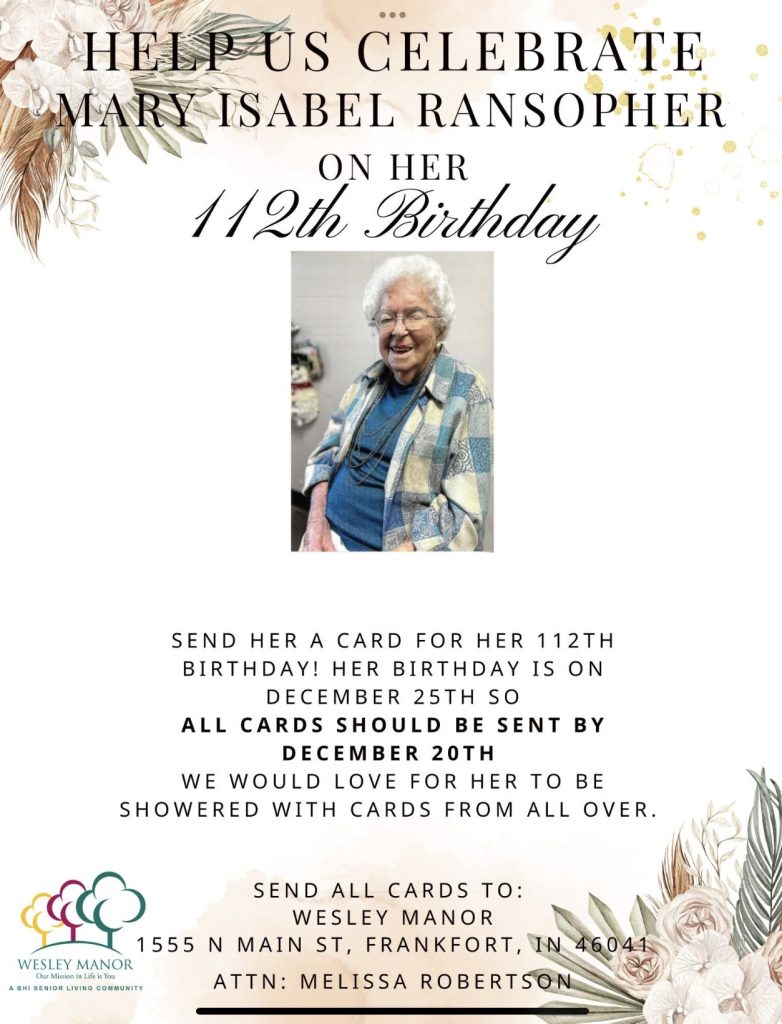Mary Isabel Ransopher turns 112 on Christmas Day, 2024. We’ll explore memories of horses, radios, television sets, church, chores, electricity along with stories told to her by her grandparents.
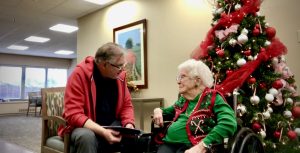
Mary was born Wednesday, December 25, 1912. She was born and grew up on an apple orchard near Russiaville, Indiana. The year she was born, the Titanic sank in the Atlantic Ocean and Girl Scouts were started by Juliette Gorden Low. The Wright Brothers flew for the first time only 9 years earlier. Mary was 29 when Pearl Harbor was attacked in 1941.
Mary and her daughter Jane sat down with us just before Christmas 2023 to share some treasured memories.
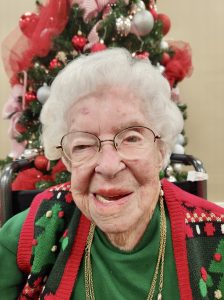
First Memories: “I remember farming with horses…and I remember them getting a tractor” she recalled. “My earliest memory I can recall was on armistice day in 1918. I remember dad…he never missed a day of work. He stopped working early, at 4, and told my mother this afternoon we are going to Russiaville and celebrate. We dressed up and went to Russiaville. There was a young lady, a teenager. She picked out all the young people and marched down the road. They had sticks with anything on it to look like a flag. The boys were marching and they wouldn’t let me march. It hurt my feelings. They said ‘You’re too little’.”
“Everything centered around New London and the Church and the school…I went to school all 12 years. I walked to school. It was gravel road. I was born at Farlow’s orchard. Never moved.”
“4-H was a big thing. We had the girls 4-H and I was a leader in Monroe township til I was married.”
World Wars: Mary was about 30 years old during World War 2. “Our friends church, Friends Church were pacifists. We did not dwell on the (war) conflict much.” “I remember my cousin walking up our driveway. He was on leave from the first world war.
“Everything was gravel, even (Indiana state road) 26”
Telephone: “I remember (our telephone) was really a novelty. There were 6 people on our line. We had one neighbor that, whenever the telephone rung, she was on the line. She eve dropped. If she didn’t hear right, she’d say who was that?” “We had to crank it (the telephone) It had a battery and when the battery got worn out, it would be dim and you’d have to buy a new battery. Our line (ringing) was two shorts. One was a Long and two shorts. Another one was four shorts. Another was a long and a short. That was the way you know who it was calling”
Radio: “Our neighbors had a radio. It was a machine about a yard, 36 inches long. It had 2 or three buttons you turned to get the station. I remember going there. They (the neighbors) put in a furnace and we went there (to look at the furnace). My dad was more interested in the new radio than the furnace.”
Television: “My husband and I, after we were married…in ‘35. In ‘40, we moved to a farm in Clinton County and lived there 12 years. During those 12 years, farmed a regular farm…cows, pigs, milk cows…and that is when television came in. My husband didn’t want to be left behind and so we bought the first television in the community. The TV was about 12 inches square and had a record player and two or three things on it. It was only on 3 hours. It came on from 6 to 9 of an evening. The neighbor teenagers came down and watch the television.”
Newspapers: “When mother and dad were first married, I remember they took two newspapers. A democrat and a republican. If you were a democrat, you’d read the Democrat paper. If you were a Republican, you’d read the Republican paper.
Joy: My church work, family, children. You enjoy what your children are doing. Money was always a problem. We never did have much money. During the depression, you watched pennies, not even nickels. And candy bars were a nickel. Nobody had any money. I remember when the banks closed. I cleaned my neighbor’s two story house for 25 cents.
Health: “A clean life, I suppose. I never touched a cigarette or a bit of liquor. We didn’t have it. In the fall, we had the orchard. That was the main thing. By the time I was a teenager, I would sell apples. I knew all the apples…what kind they were.” Mary ate a lot of apples, growing up on an orchard.
Farlow Orchard: The orchard was never open on Sunday. Later years, my brother opened on Sunday. I imagine (Apples) were a dollar a bushel. Our farm had a spring that run through the barn lot. He (dad) fixed it so it would run through the apple house and that would keep the apples all winter in good shape.
Money: We didn’t have any money. We sold milk. This is when I was a girl. We live off of the milk check. I remember making butter. We had the cream…and churned the butter. Dad resoled our shoes. A new pair of shoes was something great. He was always putting on a (new) sole. He bought a big piece of leather and would cut out the sole. During the depression people stole chickens. I remember when some men got caught in the hen house stealing chickens during the depression. In town they didn’t have milk and eggs and stuff. We had to work. We paid for what we got.
I would like you to remember: I would like you to remember the Christianity that was in the community…and the communities were tied together. It wasn’t spread out like it is now. We had a school. We had a church and our neighborhood. Our neighbors did everything for each other. You took care of what needed to be done for your family and your neighbors. You did everything together. It was such a different life. You made your toys out of sticks and stones. You played with your brothers or your neighbors. I was the only girl and (sometimes) I didn’t have anybody to play with unless neighbor girls. I wish people told more stories from the past. That was our only way of communication.
Neighbors helped Neighbors: We (with neighbors) would cut the wheat, and made it into shocks and 6 or 8 men would go together and hire the one man that owned the thrashing machine and he would come puffing down the lane to do the thrashing. He would thrash the wheat out of the field. The thrashing machine would be set up with a separator with a belt that would separate the wheat from the chaff. And then we had a new hay stack. We would always fill the mattress with the new straw. Once in a while, people would have a feather mattress. That would be from the chickens, turkeys. We knew our neighbors. We knew our friends. We knew our relatives. Things they do not have now. We had our own communities. That is something that is missing….the help with each other. Nothing such as a nursing home. When you got old you had to live with some of your relatives.
Hobbies: “Never had such a thing as a hobby. You canned your fruit and stuff.
Abraham Lincoln: “My grandmother remembers when Lincoln was shot.” Mary’s grandmother (Grandma Thompson) recalled when a man riding through New London on a horse was telling them Lincoln had been assassinated.
Daughter Jane Remembers: “I was born when they didn’t have very much money. I found a diary of mothers. It said she cried for two days when she found out she was expecting me. I was born in ‘37.
500 mile race: Mary was born the year after the first Indianapolis 500. “We used to go to the try outs. Then on race day, we’d be down there when the gates opened in order to park inside the race track. I attended, I reckon, 4 or 5 (races). I remember the golden balloons when they had the 50th 500.
Days of the Week: Wash day was Monday. Ironing was Tuesday. Mending was Wednesday. Thursday we did everything else. Friday we cleaned the house from top to bottom.
Electricity and starting the day in the dark: I remember when we first got electricity. I do remember when the electric company came down our road. If everybody would sign up, why they would bring a line. They wouldn’t bring a line if they wouldn’t sign up because that wouldn’t be profitable. Russiaville had one lightbulb in the middle of town. That’s all they had. You went to bed when it got dark. You quit. First of March dad started getting up at 4:00. In the wintertime he got up at 5. Mother would be getting breakfast while they did the milking. Then they went to the field and then come in and have breakfast and we always had prayer. Then your day’s work started about 7:00. It cost $3 dollars a month whether you used it or not. All we had was light bulbs. Electric has changed the world the most.
Mary said she was ready to go home. When you live so long that your children have retired, that’s too long.
It was a privilege and a pleasure to interview this wonderful lady turning 111 on Christmas Day in 2023.
Bob Hope once said: “My idea of Christmas whether old-fashioned or modern, is very simple: loving others. Come to think of it, why do we have to wait for Christmas to do that?”
By the way, Bob Hope was only 9 years old when Mary was born and Mary was 41 years old when WILO Radio, 1570 first went on the air 71 years ago.
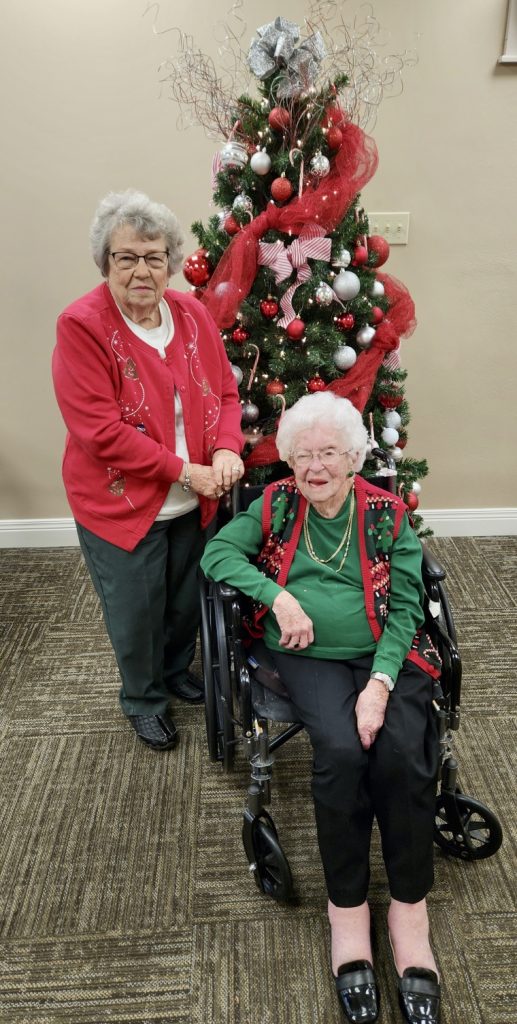
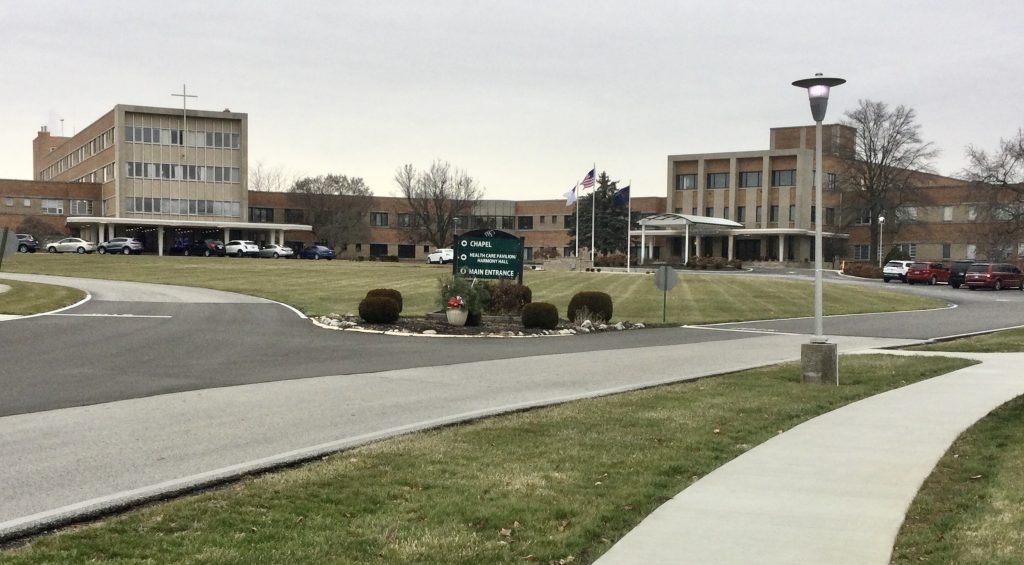
Below is a one hour interview with Mary as Russ Kaspar sat down with her at Wesley Manor in December of 2023.

